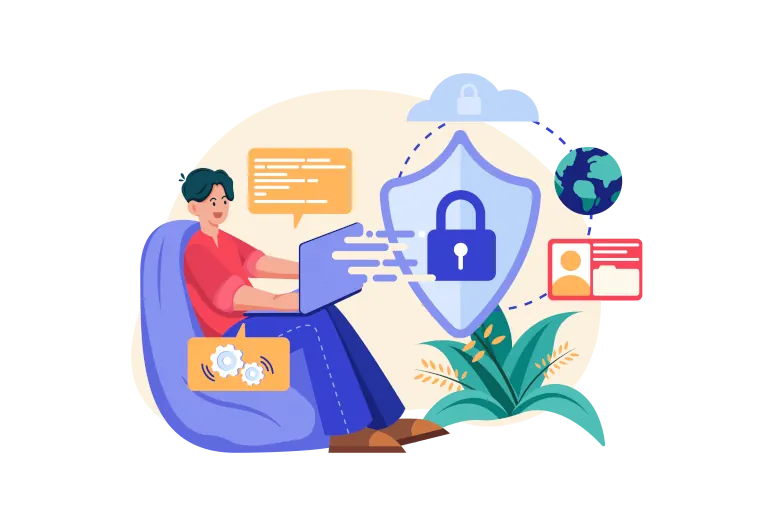
As technology continues to evolve and develop, cloud solutions are becoming increasingly popular, offering businesses the ability to store and access data remotely, as well as increase collaboration capabilities. Used correctly, cloud solutions can be a great way to increase efficiency, reduce costs, and improve data security.
What Are Cloud Solutions?
Cloud solutions are a type of technology that allows organisations to store and access data remotely via the internet. This is done through a third-party cloud provider, such as Amazon Web Services or Microsoft Azure, which provides the infrastructure and storage capacity needed for users to store and manage their data.
Cloud solutions offer many benefits, such as increased scalability, cost savings, and improved collaboration capabilities. However, it is important to take the proper security measures in order to ensure the data remains secure and protected.
Why Is Cloud Security Important?
As mentioned, cloud solutions offer many benefits to businesses, but there can also be downsides – it is important to take the necessary steps to ensure your data remains secure. A breach in security can lead to a loss of sensitive data and can be damaging to an organisation’s reputation.
Therefore, it is essential that organisations understand the importance of cloud security and take the necessary steps to ensure their data remains protected.
To ensure your cloud solution is secure, here is a checklist of best practices for cloud security:
1. Implement Multi-Factor Authentication
Multi-factor authentication is one of the most important security measures you can take to protect your cloud solutions. This requires two or more authentication methods, such as a password and a security code sent via text message, before access is granted to the data.
2. Use Encryption
Encryption is another key cloud security practice that helps protect data in transit and at rest. Encrypting data makes it unreadable and unusable to anyone who does not have the key, boosting the security of your data.

3. Monitor Access and Activity
Monitoring access to your cloud solution is essential in order to identify any suspicious activity or unauthorised access attempts. It is important to be aware of who has access to the system, as well as what activities they are performing – early detection is often critical when it comes to stopping a data breach.
4. Regularly Update Software
Software updates are essential for ensuring your cloud solution remains secure, as they often include security patches and updates to protect against new threats. It is important to ensure that all software used in conjunction with your cloud solution is kept up to date in order to minimise potential vulnerabilities.
5. Perform Backups and Recoveries
Backs ups and recoveries are one of the most important components of cloud security. Regularly backing up data helps ensure that any lost or corrupted data can be recovered quickly without causing too much disruption to the business.
Understanding how to use recovery and backup systems properly is essential for data security, as it helps to ensure that all necessary data can be recovered in the event of a system failure or data breach.
6. Provide Training
It is also important to ensure that all employees are trained on the importance of cloud security and best practices. Providing regular training sessions will help to ensure that everyone knows how to use the system properly and securely, reducing the risk of data breaches.

7. Carry Out Auditing and Logging
Get into the habit of regularly auditing and logging activity on your cloud solution. This helps to ensure that any suspicious activity is identified as soon as possible, allowing it to be investigated and rectified quickly. Regular monitoring can also help to identify any potential vulnerabilities in the system, allowing them to be addressed before they can be exploited.
8. Remain Compliant with Relevant Regulations and Standards
It is important to ensure that your cloud solution remains compliant with relevant regulations and standards – such as GDPR and ISO27001. Regularly assessing the security of your system and ensuring it meets the necessary standards will help to ensure your data remains secure.
9. Establish A Shared Responsibility Agreement?
A Shared Responsibility Agreement (SRA) is a formal document that outlines the roles and responsibilities of both the cloud service provider and the customer when it comes to protecting data and ensuring compliance. The agreement outlines which tasks are the responsibility of each party, so that all parties can be held accountable for any security issues or breaches. It is important to ensure that all stakeholders understand their obligations under the agreement.
Boost your Cloud security with Freestyle TS
Here at Freestyle TS, we understand the importance of cloud security and are dedicated to helping you ensure your data remains secure. We can help you implement best practices for cloud security, as well as provide advice and guidance on ensuring compliance with relevant regulations and standards.
Get in touch with the team and see how we can help you develop and implement a comprehensive cloud security system to keep your business safe, secure, and compliant.



